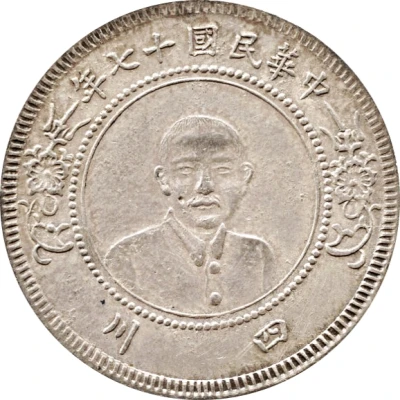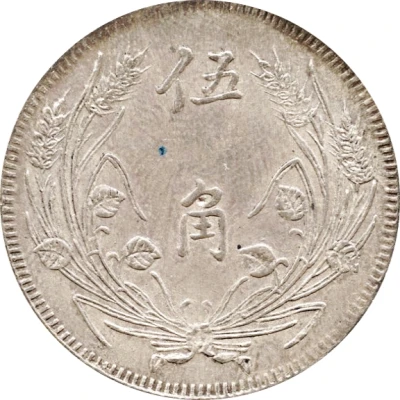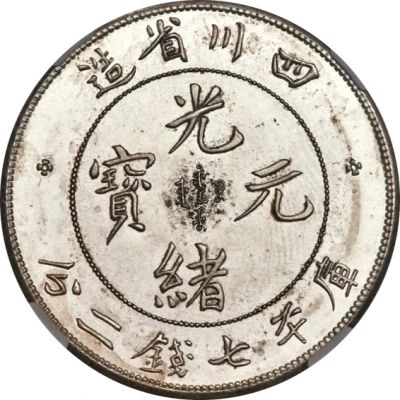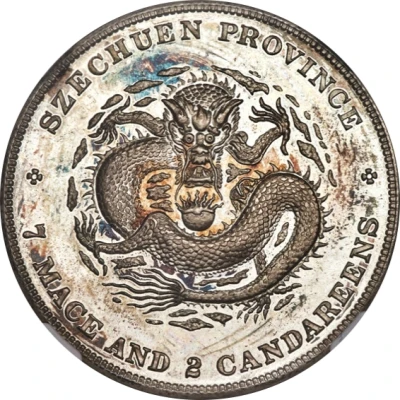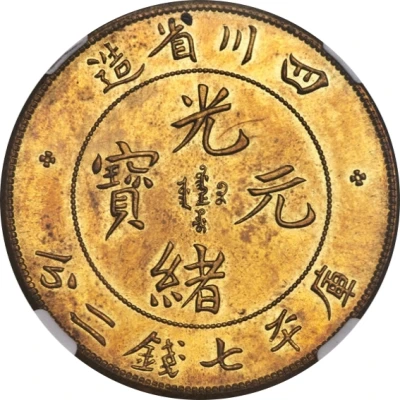
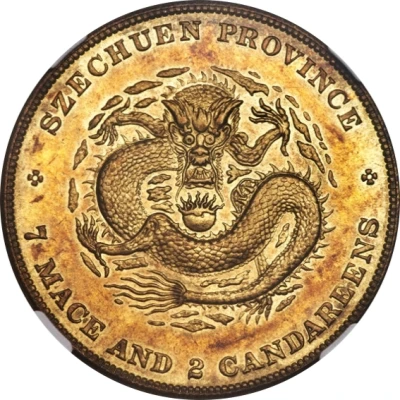

© Heritage Auctions
1 Yuan - Guangxu Pattern; brass ND
1897 year| Brass | - | 39 mm |
| Issuer | Szechuan Province (Chinese provinces) |
|---|---|
| Emperor | Guangxu (1875-1908) |
| Type | Pattern |
| Year | 1897 |
| Value | 1 Yuan |
| Currency | Yuan (1897-1949) |
| Composition | Brass |
| Diameter | 39 mm |
| Shape | Round |
| Technique | Milled |
| Orientation | Medal alignment ↑↑ |
| Demonetized | Yes |
| Updated | 2024-10-04 |
| Numista | N#297030 |
|---|---|
| Rarity index | 97% |
Reverse
Dragon with pearl at centre surrounded by English legend.
Script: Latin
Lettering:
SZECHUEN PROVINCE
7 MACE 2 CANDAREENS
Engraver: Charles Edward Barber
Edge
Reeded.
Comment
In 1896, the Imperial Government of China was wanting to modernize Chengtu's mint in Szechuan. Both the British Royal Mint and the American Trading Company were both commissioned to make patterns, with those from America being the accepted designs.These patterns were struck by the Ferracute Machine Company (who, while was not necessarily a mint, was a supplier of minting machinery) in 1897, with patterns being struck in both silver and brass. After their initial presentation, the company shipped the patterns and minting machinery to Chengtu.
It seems KM#Pn15 and KM#Pn21 are the same type, with the later being attributed to an erroneous date (1902; following Kann) and the latter being attributed to the correct date (1897; supposedly unlisted in Kann).
When everything arrived at Chengtu thirteen months later, the dies were badly rusted due to water damage. Some examples were struck in 1898, but then minting was delayed until 1901, when Chinese engravers had remade the dies (although those new dies were a much lesser quality than the originals, sometimes even displaying errors in the English legend).
Interesting fact
The Pattern 1 Yuan - Guangxu (Pattern; brass) ND (1897) from Szechuan Province (Chinese provinces) made of Brass is a rare and valuable coin that was minted during the Guangxu period (1875-1908) of the Qing dynasty. It is known for its unique pattern and the fact that it was minted in brass, which was a departure from the traditional silver or copper coins that were commonly used during that time. The coin features a dragon on one side and a phoenix on the other, symbolizing the harmony between yin and yang. It is considered a prized collector's item among numismatists and is highly sought after for its historical significance and rarity.
